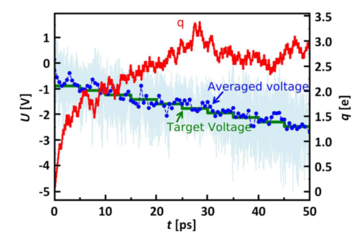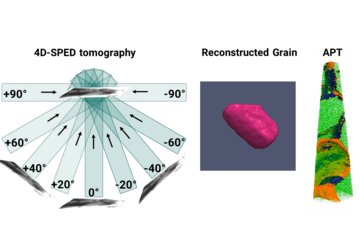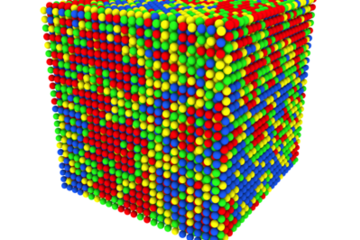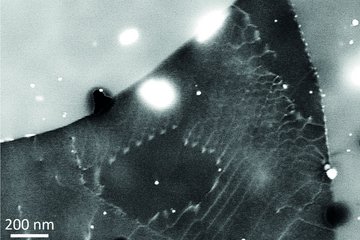All genres
21.
Talk
Stability of a novel Pt/Ru catalyst for polymer electrolyte membrane fuel cells. 64. Metallkunde-Kolloquium, Lech am Arlberg, Austria (2018)
22.
Talk
Novel electrodes for polymer based fuel cells. The 18th Israel Materials Engineering Conference (IMEC18), Dead Sea, Israel (2018)
23.
Talk
TEM Tomography: Insights into the degradation of Pt/Ru fuel cell catalysts. 3D materials characterization at all length scales and its application to iron and steel, MPIE Düsseldorf, Düsseldorf, Germany (2017)
24.
Talk
Insights into degradation processes in WO3-x based anodes of HT-PEMFCs via electron microscopic techniques. Fuel Cells Science and Technology 2016 , Glasgow, Scotland, UK (2016)
25.
Talk
Template-free synthesized high surface area 3D networks of Pt on WO3-x – a promising alternative for H2 oxidation in fuel cell application. 2016 MRS Fall Meeting, Boston, MA, USA (2016)
26.
Talk
Electron microscopic insights into degradation processes in high temperature polymer electrolyte membrane fuel cells. Scandem 2015, Jyväskylä, Finland (2015)
27.
Poster
Phase Transformation of Copper Hexacyanoferrate Cathode in Aqueous Zn-Ion Battery. 2019 MRS Fall Meeting , Boston, MA, USA (2019)
28.
Poster
3D Reconstruction of Identical Location Electron Micrographs – Methodology and Pitfalls. IAMNano 2019, International Workshop on Advanced and In-situ Microscopies of Functional Nanomaterials and Devices, Düsseldorf, Germany (2019)
29.
Poster
Insights in pore-interconnected hollow (Sn,Ti)O2 nanoparticle networks for lithium-ion battery anodes. Microscopy Conference MC2019 , Berlin, Germany (2019)
30.
Poster
Tracking the Degradation of Fuel Cell Catalyst Particles: 3D Reconstruction of Nanoscale Transmission Electron Micrographs. CINEMAX IV, "Best poster Award at the Summer School", Toreby, Denmark (2018)
31.
Poster
Microstructure characterization on electrodes and catalysts. Chinese-German Chemical Association (CGCA) 30th Annual Conference, Berlin, Germany (2018)
32.
Poster
Cs corrected STEM analysis – operation related nanoscale degradation processes in high-temperature polymer-electrolyte-membrane fuel cells. Microscopy Conference 2017 (MC 2017), Lausanne, France (2017)
33.
Poster
Material optimization for high-temperature polymer-electrolyte-membrane fuel cells. Material optimization for high-temperature polymer-electrolyte-membrane fuel cells, Duisburg, Germany (2016)
34.
Poster
Growth of novel Pt 3D networks on WO3-x electrodes and their effect on the performance of fuel cells. EMC 2016, 16th European Microscopy Congress, Lyon, France (2016)
35.
Poster
Electron microscopy studies of WO3-x based anodes for high temperature polymer electrolyte membrane fuel cells. IAM Nano 2015, Hamburg, Germany (2015)
36.
Poster
Degradation analysis of high temperature polymer electrolyte membrane fuel cells via electron microscopic techniques. TEM-UCA European Summer Workshop, Cadiz, Spain (2015)
37.
Thesis - PhD
Investigation of alternative catalyst and support materials and their effect on degradation in high-temperature polymer-electrolyte-membrane fuel cells. Dissertation, RWTH Aachen University, Aachen, Germany (2017)











